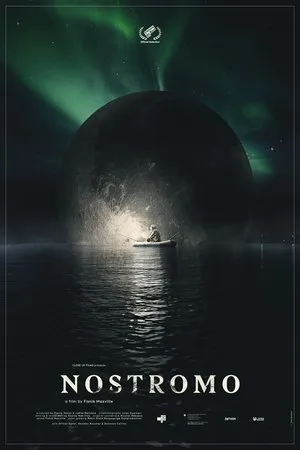Alaska, a film set against the backdrop of the Mecklenburg Lake District, tells the story of Kerstin, a woman seeking solace and solitude on the water. Drifting aimlessly in her red GDR kayak, she navigates the familiar rivers and lakes, seemingly content in her isolation. However, beneath the surface of her stoic demeanor lies a sense of unease, a hint of a past she is trying to escape. The film delicately explores themes of isolation, escape, and the search for inner peace. Kerstin’s journey is not merely a physical one; it is a reflection of her internal struggles, her desire to remain hidden from the world and perhaps even from herself. The vastness of the lake district mirrors the vastness of her own personal history, a history that she is reluctant to confront. The arrival of Alima marks a turning point in Kerstin’s journey. Alima’s presence disrupts the carefully constructed wall of solitude that Kerstin has built around herself. Through Alima’s questions, the audience begins to glimpse the reasons behind Kerstin’s flight, the forces that are driving her to seek refuge in the anonymity of the water. The film subtly hints at a past trauma or a dangerous situation from which Kerstin is running, adding a layer of suspense to the otherwise tranquil setting. The contrast between the beauty of the natural surroundings and the turmoil within Kerstin creates a compelling narrative tension. The film invites viewers to contemplate the nature of solitude, the burden of the past, and the possibility of finding connection and healing in unexpected places. The red GDR kayak becomes a symbol of Kerstin’s journey, a vessel carrying her through both physical and emotional landscapes. As she paddles through the water, she is not only navigating the lakes and rivers but also confronting her own inner demons. The film’s strength lies in its ability to convey complex emotions through subtle gestures and evocative imagery. The audience is drawn into Kerstin’s world, invited to share in her solitude and to ponder the mysteries of her past. Alaska is a thought-provoking exploration of the human condition, a reminder that even in the most isolated of circumstances, the possibility of connection and healing remains. The film’s ending leaves the audience with a sense of hope, suggesting that Kerstin’s journey, though fraught with challenges, may ultimately lead her to a place of peace and self-acceptance. The film is a testament to the resilience of the human spirit and the power of human connection to overcome even the deepest wounds.

Alaska (2023)
In the serene yet melancholic setting of the Mecklenburg Lake District, Kerstin drifts along in her kayak, seeking solitude amidst the waterways. Her journey is marked by an unspoken past and an unknown pursuer, creating an atmosphere of mystery and introspection. The tranquility is disrupted by the arrival of Alima, whose questions begin to unravel Kerstin's carefully constructed isolation, hinting at a deeper story of escape and self-discovery.











